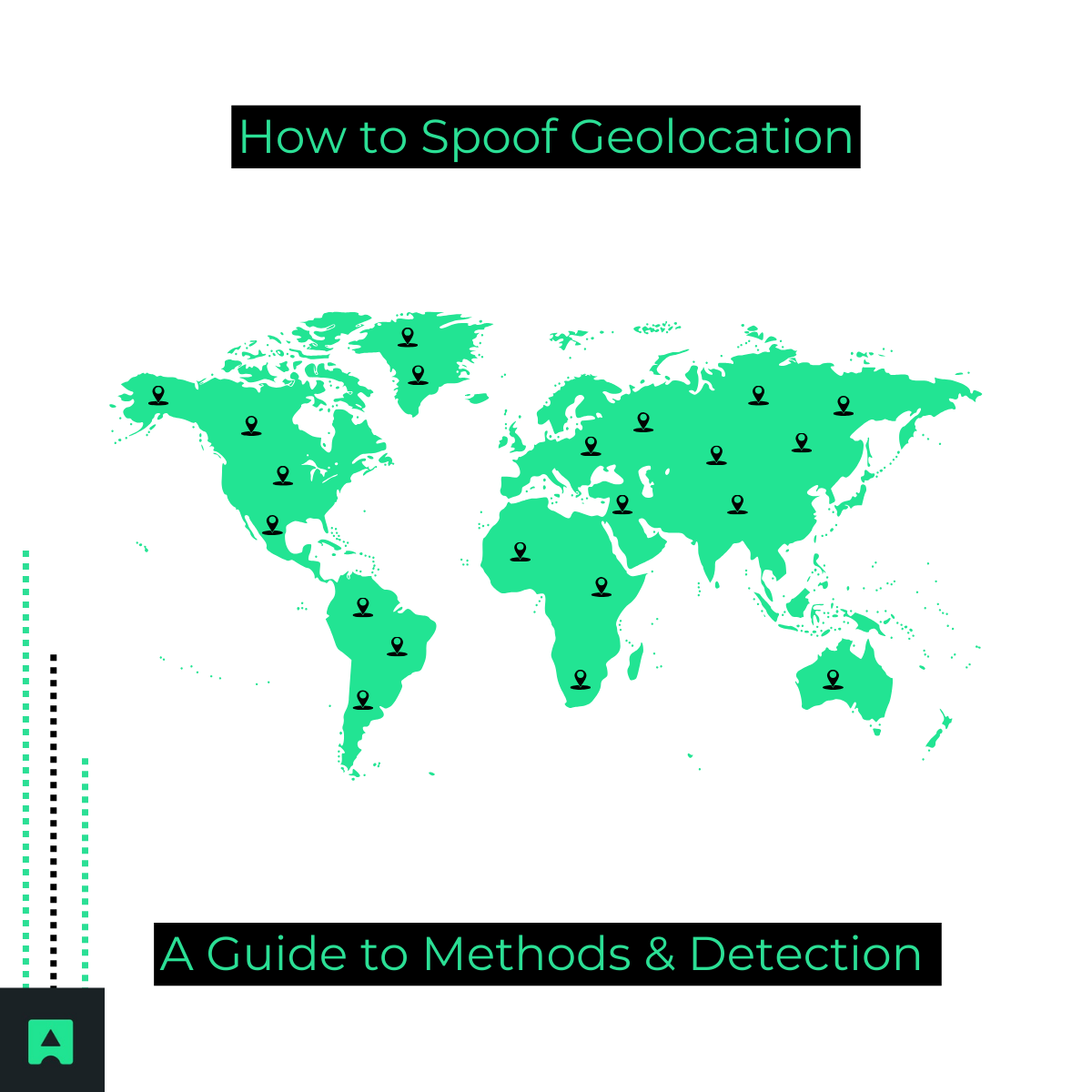How do I change my geolocation? 🧭
When we talk about “geolocation,” we’re really referring to two different technical layers that can identify where you are:
- Your IP address (used by websites and streaming services).
- Your GPS coordinates (used by mobile apps and games).
Let’s break these down:
- Method 1: IP Address Spoofing (Websites & Streaming)
This approach works by disguising the IP address your device shows to websites. Since most services rely on IP addresses to determine where you are, changing it is the go-to method for bypassing geographic restrictions—like when someone wants to watch a sports match available only in another country. ⚽
Common tools include:
- VPNs (Virtual Private Networks): The most popular choice. A VPN routes your connection through servers in another country, making it look like you’re there.
- Proxy servers: A simpler alternative, though less secure and more easily flagged than VPNs.
- Method 2: GPS Spoofing (Mobile Apps & Games)
This method tricks your phone’s operating system into reporting false GPS coordinates. It’s most often used in mobile apps and games that depend heavily on your physical position. For example, gamers might use GPS spoofing to explore areas in an augmented reality game without physically moving. 🎮
Ways to do it:
- On Android, apps such as “Location Changer” can override your real GPS data.
- On iOS, developer tools like Xcode let you simulate movement across different places.
👉 So, is it possible to spoof a GPS location? Absolutely. It just takes the right tools—and usually a bit of technical setup.
Is spoofing your location illegal? ⚖️
This is one of the most frequent questions people ask, and the truth is that the answer isn’t completely black and white—it largely depends on the situation.
The straightforward answer: In most jurisdictions, changing or faking your location is not considered a criminal offense on its own. Simply using a VPN to appear in another country or an app to adjust your GPS coordinates usually doesn’t put you in direct conflict with the law.
The critical nuance: While not necessarily unlawful, geolocation spoofing almost always goes against the Terms of Service (ToS) of the platform or software you’re interacting with. Popular services—like video-on-demand platforms, competitive online games, or dating applications—typically include clear rules forbidding the manipulation of location data. Violating these agreements can result in account restrictions, temporary suspensions, or even permanent bans. 🚫
When it does become illegal: The situation changes if spoofing is used with harmful intent. For example, using a fake location to commit fraud, deceive others in financial transactions, or bypass regulatory restrictions is a criminal act. In these cases, law enforcement can get involved, and legal consequences can be severe.
👉 In short: while the act of spoofing your location is generally not against the law, it comes with risks. You may not face legal prosecution for casual use, but you could lose access to your accounts—or worse, if the spoofing is tied to fraudulent activity.
Can location spoofing be detected? 👀
Yes—and companies are getting better at catching it every day. Location spoofing is often described as a cat-and-mouse game, where users try new methods to fake their position, and services adopt more sophisticated tools to expose them.
How IP spoofing is detected
- VPN/Proxy lists: Many platforms subscribe to databases of known VPN, proxy, and data-center IPs. If your IP matches one, you’re flagged.
- Inconsistent data: Services may cross-check your IP location against other clues—like your account’s billing address, the currency you use, or your browser’s preferred language. If you’re connecting from “France” but your account history shows years of U.S. activity, that’s suspicious.
How GPS spoofing is detected
- Mock location settings: On Android, apps can detect if the “Allow mock locations” setting is enabled, which often signals GPS spoofing.
- Signal cross-referencing: Some apps verify your GPS coordinates against nearby Wi-Fi networks or cell tower signals. If your GPS says you’re in Tokyo but your Wi-Fi data places you in Madrid, you’ll get flagged.
The bottom line: While spoofing works in many cases, it’s far from invisible.
The Professional’s View: How Businesses Use APIs to Detect Spoofing 🛡️
For companies, detecting spoofing isn’t just about enforcing rules—it’s about protecting their business. Streaming platforms, financial apps, and e-commerce services all rely on accurate geolocation to prevent fraud and honor regional licensing agreements.
That’s why they don’t just check IP addresses. Instead, they use advanced tools like the AbstractAPI IP Geolocation API, which can:
- Identify whether an IP belongs to a VPN, proxy, or Tor exit node.
- Return precise location data alongside a security object that highlights suspicious activity.
- Automatically help apps and websites block or flag spoofed connections.

By integrating professional-grade APIs, businesses can stay a step ahead of spoofers while safeguarding their users and revenue.
Conclusion 🚀
Spoofing your geolocation can be surprisingly simple—whether through a VPN to change your IP or an app that fakes GPS data. And while it’s not usually illegal, it can break service rules and cost you access to your favorite platforms. Most importantly, remember that detection methods are advancing constantly, so what works today may not work tomorrow.
👉 Want to test it yourself? Try running your IP address through our free IP Geolocation Tool to see the same data businesses use to spot VPNs and proxies.




